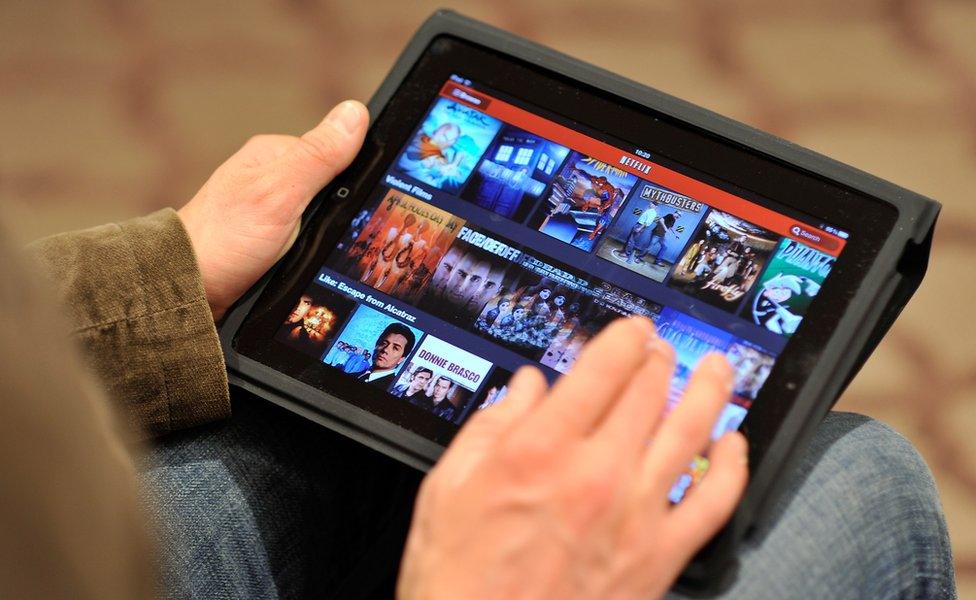Sky stakes claim on the future of TV
- Published
- comments
Rory takes a look at Sky Q
For Sky's chief executive it was "the biggest reimagining of Sky in our history", for its head of new products it was "an entirely new way to enjoy all the TV you love across all the screens in your life."
The satellite broadcaster was certainly not underplaying the importance of the Sky Q service at a glitzy launch this morning. But does a product which combines the power of satellite broadcasting with the flexibility of on-demand TV over the internet really put Sky ahead of the game - or is it playing catch-up?
Sky Q is intended to be the successor to the Sky+ box, which the company says is Britain's most successful set-top box. Those who sign up to the premium service will get the new Silver box, along with a touch-sensitive remote control. They can also get mini-boxes, connected over wifi rather than satellite, allowing them to watch in rooms around the home, and viewing as many as four different programmes on different screens.
And they will be able to take their recorded programmes with them on tablets or smartphones to watch wherever they like. Coupled with the promise of next generation UHD (or 4K) content, to be introduced later in 2016, Sky is telling its more than 12 million customers that they will be future-proofed with a state-of-the-art product that will evolve.

More young people are watching on-demand TV
What it isn't telling them is how much Sky Q will cost when it becomes available early next year, but we can be sure that the aim is to get them spending more. The average customer spends £47 per month on Sky, and those with top-end packages plus a broadband connection can easily spend upwards of £80 a month. Those kind of customers will now be invited to break the £100 per month barrier.
But this comes against a background of changing TV habits, particularly amongst the young. Those aged between 16 and 24 are watching less TV and much of what they are viewing is on phones or tablets and is mainly made up of online services like YouTube or Twitch.
Meanwhile, early technology adopters are discovering that they can get a lot of content without ever signing up to a satellite or cable subscription. Services such as Netflix, Amazon Prime Video and Sky's own Now TV, coupled with devices like Amazon Fire, Google's Chromecast or Apple TV allow users to create their own bespoke TV bundles. Much online TV content can also be streamed - and in some cases downloaded - to smartphones or tablets.
So with just a little effort, you can replicate most of the features of the Sky Q service at a much lower price, and without committing to a long-term contract. In the United States this kind of behaviour is called cord-cutting and is causing deep anxiety amongst the cable operators and traditional broadcasters.
Sky Q, then, will struggle to live up to the hype at its launch. Or maybe not. What it still has is a stranglehold on exclusive content, principally football, coupled with a great track record in introducing new viewing technology - if we ignore 3D TV.
The other factor is that the vast majority of viewers still look for as simple a TV experience as possible rather than wanting to fiddle around with new gadgets. So it's a fair bet that Sky will usher plenty of them smoothly, gently - and very profitably - into this new internet-connected TV era.